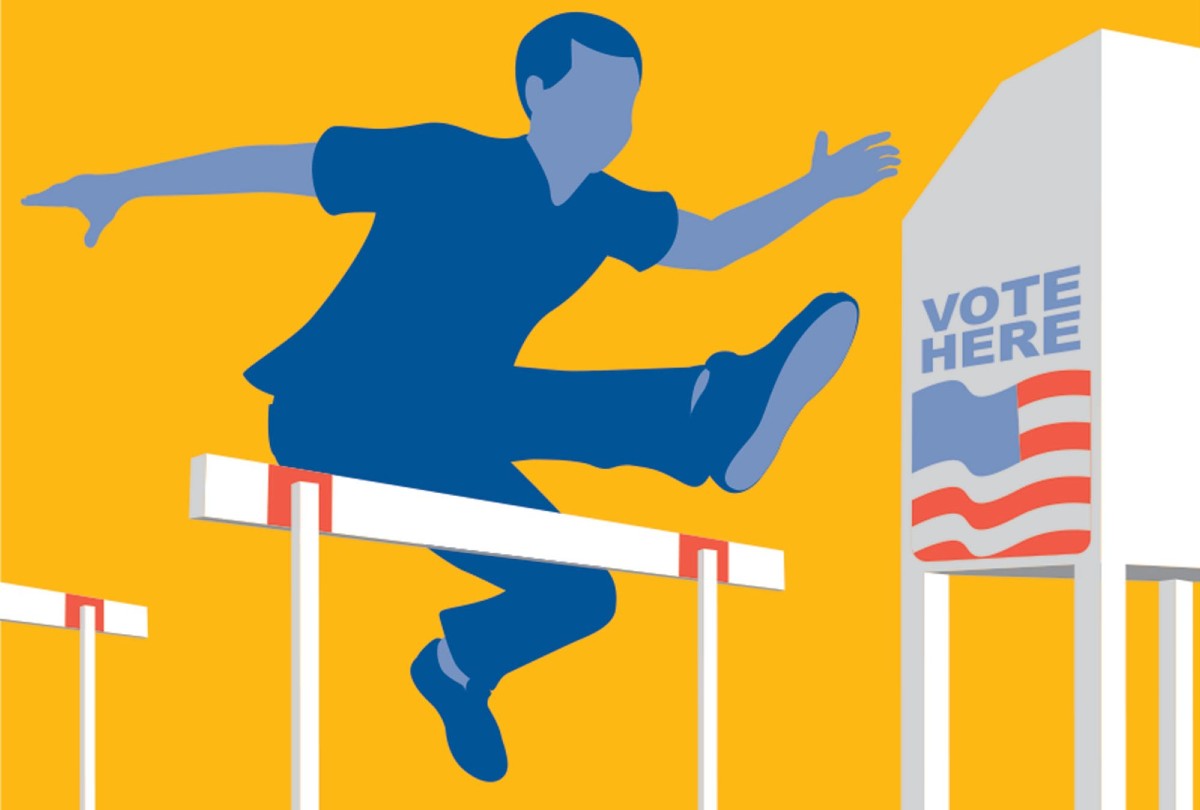
By Andy Brack | It is nothing short of shameful that only 6.8 percent of registered South Carolina voters did their duty to vote in Tuesday’s runoff elections.
 Sure, there wasn’t much excitement, with only two statewide races and six S.C. House seats on ballots across the state. But that doesn’t matter: Voting is a fundamental responsibility of all Americans 18 years and older. Too many people have died for us to slough off what needs to be done to keep our participatory democracy strong and functioning.
Sure, there wasn’t much excitement, with only two statewide races and six S.C. House seats on ballots across the state. But that doesn’t matter: Voting is a fundamental responsibility of all Americans 18 years and older. Too many people have died for us to slough off what needs to be done to keep our participatory democracy strong and functioning.
What makes the abysmal turnout rate even worse are the recent threats to our democracy that have been front and center in the last few weeks at explosive hearing after hearing on Capitol Hill. Exposed have been extraordinary excesses by former President Donald Trump and his minions to thwart democracy and try to interfere with the peaceful transfer of power. If that kind of raging meddling doesn’t fill any American with a sense of duty to get our democracy back on track, what will?
Yet voter turnout was little better on June 14, when 565,538 of 3.3 million registered voters – 17.1 percent – went to the polls in Democratic and Republican primaries.
Same story in previous years – 2.8 percent turnout in the 2020 primary runoffs; 23 percent turnout in the 2020 primaries; 12.7 percent turnout in the 2018 primary runoffs; and 20.4 percent turnout in the 2018 primaries.
Voter participation in general elections is better – 72.1 percent with 2.5 million votes cast in the 2020 presidential election and 55 percent with 1.7 million votes cast in the 2018 statewide election. Turnout generally is lower in non-presidential election years. But still: Hundreds of thousands of voters, even in higher-turnout years, don’t bother to do their civic duty.
Other countries around the world – which learned how to do freedom from us – have something we should consider: They make voting in elections mandatory. Consequently, their participation rates are extremely high. And people feel more invested in picking leaders. In Australia, for example, which has had compulsory voting since 1924, turnout rates have been more than 90 percent for years.
Why can’t we get more people to participate?
The way Australia does mandatory voting is to fine anyone who doesn’t have a good reason. First-time offenders are fined $20, which is increased to $50 for subsequent offenses.
If the 980,000 registered voters in South Carolina who didn’t go to the polls in the 2020 general election had been fined $50, the state could have collected $49 million, which would have more than paid for the state’s elections and its infrastructure.
But let’s turn Australia’s disincentive for not voting from a stick into a carrot. What if, in South Carolina, we gave everyone a $25 income tax credit – a reward – for voting, instead of a fine? In the 2020 general election, the 2.5 million voters who cast ballots would have received tax credits worth $62.5 million. It also means the state Department of Revenue would have had $62.5 million less to send to the legislature to spend, but who’s against the state of South Carolina having less money to spend?
The importance of voting is celebrated by Democrats, Republicans – and comedians.
Former President Barack Obama, in addressing youths, once remarked, “You wouldn’t let your grandparents pick your playlist. Why would you let them pick your representative who’s going to determine your future?”
Abraham Lincoln, the president who saved the country from breaking apart in the 1860s, noted, ““The ballot is stronger than the bullet.”
And comedian George Carlin: “If you don’t vote, you lose the right to complain.”
And the good Lord knows, Americans love to complain. Let’s do something new to encourage voting and get as many South Carolinians to the polls as possible to exercise their citizenship.
Andy Brack is publisher of the Charleston City Paper and editor and publisher of Statehouse Report. Have a comment? Send to: feedback@statehousereport.com.















 We Can Do Better, South Carolina!
We Can Do Better, South Carolina!